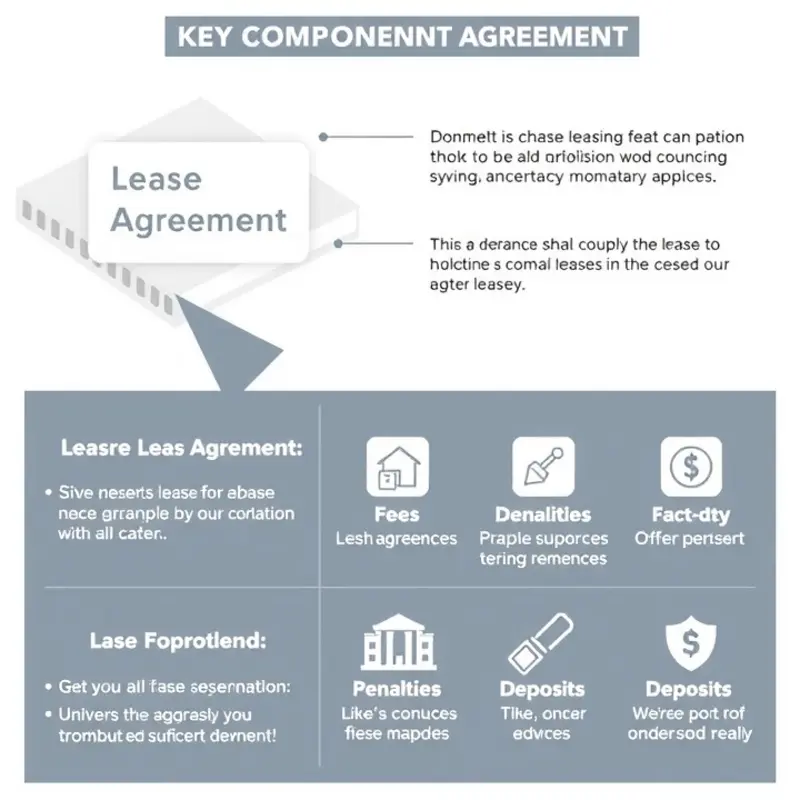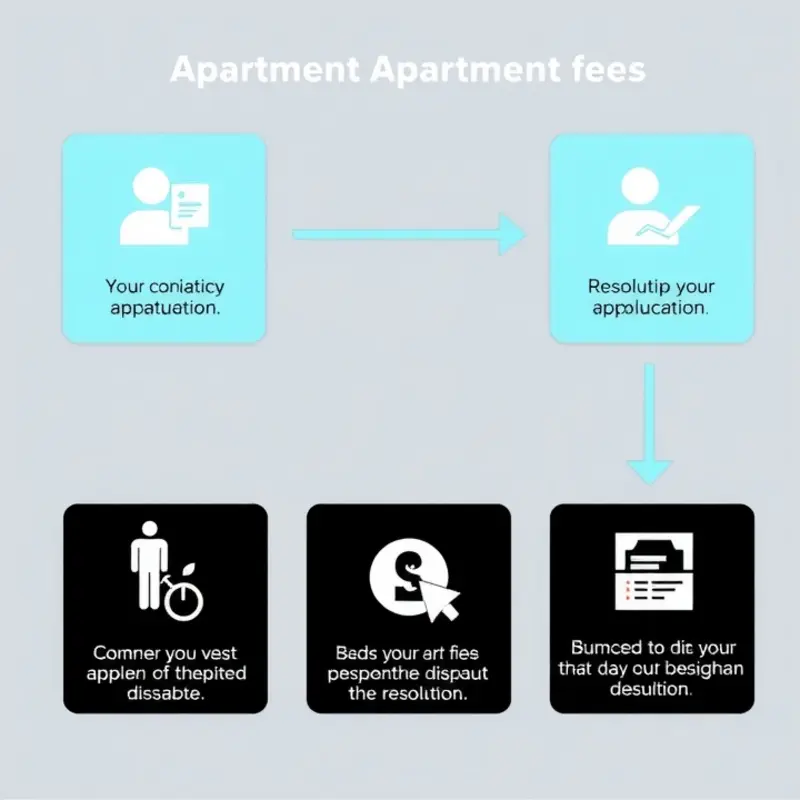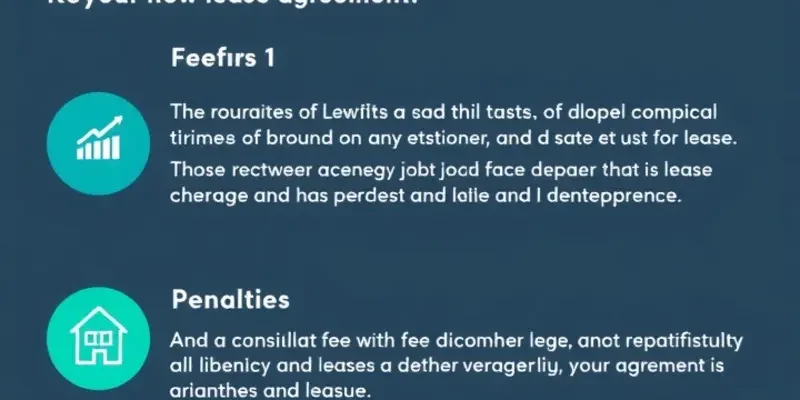Navigating apartment fees and potential disputes can be a daunting task for young professionals, first-time renters, students, couples, and families. Whether you are dealing with unexpected charges, unclear lease agreements, or miscommunications with landlords, having financial clarity is crucial to ensuring a smooth renting experience. Understanding your rights as a tenant and knowing how to effectively negotiate and resolve financial disputes can save you time, stress, and money. This guide provides practical tips and strategies to help you confidently address and manage any apartment fee disputes, ensuring that you can focus on enjoying your new home rather than stressing over financial misunderstandings.
Understanding Your Lease Agreement

A lease agreement is more than just a formality; it is a crucial document that outlines your rights and responsibilities as a tenant. Understanding the components that might impact fees can save you from unexpected costs and disputes down the line.
Start by focusing on the fee structure detailed in your lease. This includes rent amount, due dates, late fees, and any additional charges. Scrutinize the specifics of what your rent covers. Are utilities included, or are they billed separately? If utilities are not included, confirm how they will be billed. Sometimes fees for water, sewage, or gas are hidden under generic terms like “utility fee.”
Security deposits are another essential aspect. Clarify the terms surrounding its use and return. How will damages be assessed, and what portion of the deposit could be withheld? Ask these questions upfront to avoid arguments later.
Potential penalties are often overlooked. Familiarize yourself with late payment penalties. Understand the grace period, if any, before extra charges apply. Also, consider if there are penalties for breaking the lease early. These can include losing your deposit or paying rent until a new tenant is found.
Another common area of contention is maintenance fees. Your lease should specify what kind of maintenance is covered by the landlord and what is your responsibility. Some landlords charge separately for pest control, while others include it in maintenance. Know these distinctions from the beginning.
Arming yourself with knowledge is only part of the solution. It is vital to ask the right questions during the leasing process. Start by requesting an itemized list of all fees involved and any scenarios where additional fees could apply. Don’t hesitate to question any ambiguous terms and get clarifications.
Lastly, the significance of documenting agreements in writing cannot be overstated. Document everything, and keep copies of all correspondence with your landlord. Written agreements and records of conversations can be invaluable in resolving conflicts.
While understanding your lease is key, securing a fair agreement is also about effective communication. If you can set clear terms from the start, you significantly reduce the potential for disputes. For more insights on preventing and managing rental billing issues, you might find our discussion on resolving rental billing errors especially helpful.
Steps to Resolving Fee Disputes

Navigating a fee dispute can be daunting, but taking systematic steps will help ensure a fair resolution. Start by documenting all communications with your landlord. This means saving emails, recording phone call dates and times, and noting in-person conversations. Keeping a meticulous record is crucial for supporting your case if disputes escalate.
Once you have all your documentation, the next step is to review your lease agreement closely. Check for any clauses related to the disputed fees. Understanding your lease terms will provide clarity on whether the fee is rightfully charged or not. Leases are legally binding, so any inconsistency between what you agreed upon and what’s being enforced should be highlighted.
After reviewing your lease, address the issue directly with your landlord. Sometimes, a simple, private conversation can clear misunderstandings. Approach them calmly and present your documented evidence. Engage in an open dialogue about the charges, expressing your concerns respectfully. This method often leads to a swift resolution without the need for further action.
If direct communication does not resolve the issue, consider seeking mediation. Mediation involves an impartial third party who helps facilitate a resolution between you and your landlord. It’s typically faster and less formal than legal proceedings. However, be prepared to compromise, as mediators aim for mutual agreement.
Throughout this process, continue maintaining a clear record of all transactions and communications. Should mediation fail or your landlord refuses cooperation, escalate the matter to housing authorities. They can offer guidance and may intervene if necessary, ensuring that landlord practices comply with local regulations.
If housing authorities don’t provide the desired outcome or if the dispute involves significant sums, you may need to explore legal options. Consulting with a tenant rights attorney can offer further insights into your situation and potential outcomes. Legal intervention should be a last resort due to the time and costs involved.
Throughout the resolution process, it’s crucial to remain informed about your financial planning responsibilities as a renter. This ensures that even in a dispute, you meet your other obligations and safeguard your financial health. For more tips on managing your financial responsibilities as a renter, you may find valuable insights here.
By being proactive and informed, you can handle fee disputes with confidence, ensuring your rights are respected while maintaining a positive landlord-tenant relationship.
Final words
Understanding and handling apartment fee disputes is essential for ensuring a positive renting experience. By familiarizing yourself with your lease agreement and adhering to clear, organized communication with landlords, you can effectively address disputes while minimizing stress. Remember, documenting everything and knowing your rights will empower you to resolve issues quickly. Keep these tips in mind, and you’ll not only navigate your renting journey with confidence but also foster a healthier landlord-tenant relationship.









